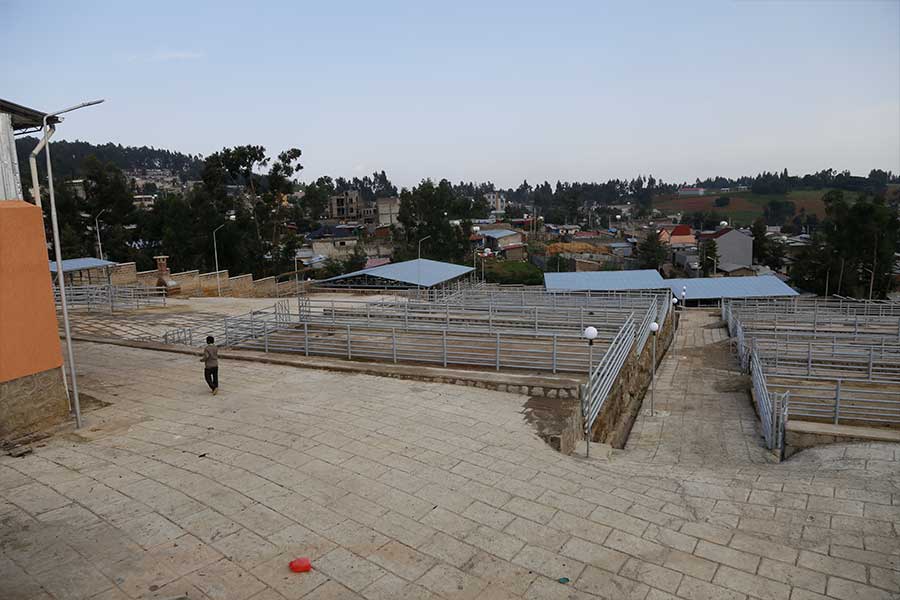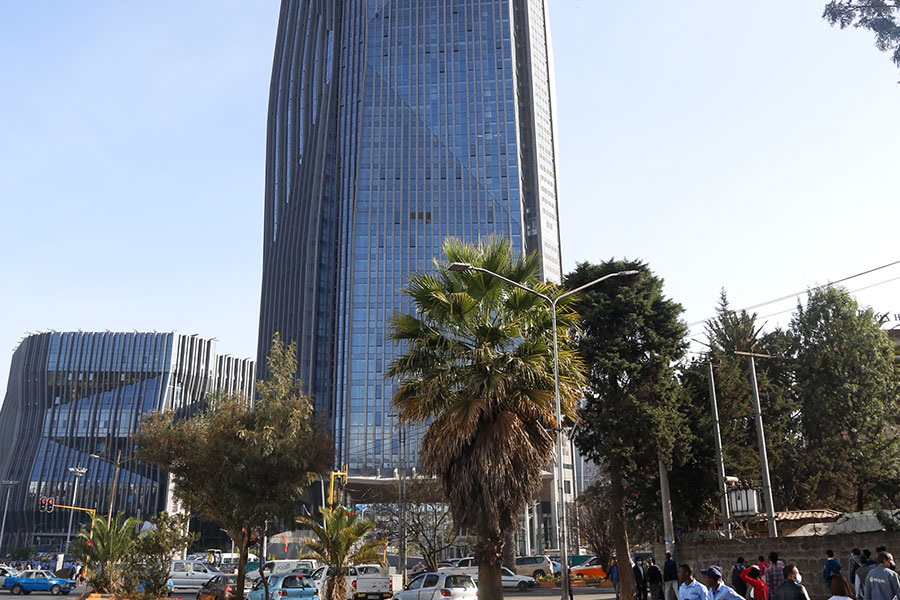
Fortune News | Jul 13,2020
Trade authorities’ attempt to regulate the besieged cement supply chain faced a backlash last week, exacerbating long-standing issues in the market. It pushed retail prices for cement to an unprecedented 1,500 Br a quintal, creating apprehension in the broader economy, for, cement drives core inflation upward.
The price increase comes after a series of ordinances from Gebremeskel Chala, minister of Trade & Regional Integration. He ordered cement distribution through agents stopped and cement factories to sell directly to government entities and institutional buyers. Minister Gebremeskel urged regional administrations to set up depots for storage and distribution. The Minister also pushed factories to hand over 30pc of their products to youth associations, which retail to end users.
Last week, the Ministry reintroduced a price cap, compelling cement factories to sell a quintal to designated distributors for between 770 Br and 870 Br. Cement plants set specific prices for destinations considering transport and warehousing costs.
Gebremeskel’s move has backfired. It resulted in the highest retail prices the construction industry has ever seen.
A buyer, Daniel Getachew, was roaming around Megenagna, a hub for cement retail in Addis Abeba, last week. He is renovating a three-bedroom house. Two weeks ago, Daniel bought 20qtl of cement for 1,250 Br apiece. Retailers had almost nothing in stock when he came around the second time.
“The contractor urged me to buy cement quickly before retailers run out,” he told Fortune.
After hours of bargaining with retailers, Daniel bought 16qtl for 24,000 Br.
A salesperson at one of the retail stores in Megenagna, Abeba Alemayehu, says she had sold a quintal of cement at 1,200 Br until last week.
“Our warehouse is empty now,” she told Fortune.
Retailers depend on intermediaries, not allowed to buy from the factories.
“After authorities banned the involvement of intermediaries in the supply chain, we’re left with nothing,” she said.
Officials claim the market crisis forced them to take the measures. The Ministry chose to let the factories have the final say on retail prices, avoiding price caps, according to Kumneger Ewnetu, communications director.
It is the authorities’ second attempt to control the cement market through price caps in two years. The Trade Ministry had capped distribution costs to 20 Br a quintal and limited wholesale privileges to six authorised dealers. The Ministry was forced to remove the price cap two months later as the procedures had brought on a severe cement shortage and driven a spike in retail prices.
Kumneger says this week’s measure is temporary.
Getie Andualem (PhD), a lecturer at the Addis Abeba University College of Business & Economics, argues the government has no business interfering in the cement market.
“Officials should first determine whether cement is a strategic commodity that requires government involvement whenever the market fails to function properly,” he said.
The turbulence comes during a shortfall in production. The Ministry expects the 10 cement plants to supply a little more than 200,000tn of cement monthly. Derba Cement was expected to supply 37,000tn a month. However, Haile Asegede, general manager of the factory, disclosed to officials that the factory’s production dropped by 30pc due to a rise in fuel prices and a shortage of coal – a primary energy source for cement plants.
The same goes for National Cement, which supplies two types of cement products – ordinary portland and pozzolanic portland cement. Established by the Italians in 1936, National Cement’s plant is in Dire Dawa, around 500Km east of the capital. Owned by Bizuayehu Tadelle, a businessman running East Africa Holdings, the plant can produce up to 3,000tn of cement a day. However, according to Fitsum N. Demisse, chief executive officer (CEO) of National Cement, it is utilising only three-quarters of its capacity.
Officials expect National Cement to supply close to 42,000tn a month.
Fitsum attributed the decline in production to a shortage of coal. His factory sources coal from small-scale miners in Kamashi Zone, Benishangul-Gumuz Regional State. He disclosed security concerns have hampered efforts to secure coal.
“The quality of the coal in the local market is poor,” he said.
Ethiopia spends a quarter of a billion dollars annually to import coal, which has been more than halved in the last two years.
The Ethiopian Petroleum Supply Enterprise is tasked with importing and distributing coal. The Enterprise has not purchased coal from abroad in recent months due to a shortage of foreign currency, people familiar with the company disclosed to Fortune.
Mugher Cement supplies its product directly to public projects and state-owned enterprises. The factory is among the few companies utilising 80pc of their capacity, much higher than the industry average of 62pc. Established in 1984, the state-owned Mugher Cement can produce one million tonnes annually.
“We’re still supplying government projects,” said Gezahegn Dechasa, general manager of Mugher Cement.
The Ethiopian Industrial Inputs Development Enterprise and the Ethiopian Trading & Business Corporation distribute cement in Addis Abeba. The Enterprise distributes more than 60,000tn a month, three-quarters allocated to large public projects. The remaining is supplied to retailers through its six outlets in Addis Abeba.
“Anyone who presents a building permit can buy cement from one of our outlets,” said Solomon Girsha, deputy CEO.
Five cement factories, including Derba and Dangote, are made to supply to the Enterprise.
Solomon says the Enterprise will begin to sell cement based on the new rule starting this week.
“We’re still preparing,” he said.
PUBLISHED ON
Jul 30,2022 [ VOL
23 , NO
1161]

Fortune News | Jul 13,2020

Fortune News | Nov 12,2022

Commentaries | Dec 25,2018


Radar | Jun 24,2023

Dec 22 , 2024 . By TIZITA SHEWAFERAW
Charged with transforming colossal state-owned enterprises into modern and competitiv...

Aug 18 , 2024 . By AKSAH ITALO
Although predictable Yonas Zerihun's job in the ride-hailing service is not immune to...

Jul 28 , 2024 . By TIZITA SHEWAFERAW
Unhabitual, perhaps too many, Samuel Gebreyohannes, 38, used to occasionally enjoy a couple of beers at breakfast. However, he recently swit...

Jul 13 , 2024 . By AKSAH ITALO
Investors who rely on tractors, trucks, and field vehicles for commuting, transporting commodities, and f...

Jul 5 , 2025
Six years ago, Ethiopia was the darling of international liberal commentators. A year...

Jun 28 , 2025
Meseret Damtie, the assertive auditor general, has never been shy about naming names...

Jun 21 , 2025
A well-worn adage says, “Budget is not destiny, but it is direction.” Examining t...

Jun 14 , 2025
Yet again, the Horn of Africa is bracing for trouble. A region already frayed by wars...